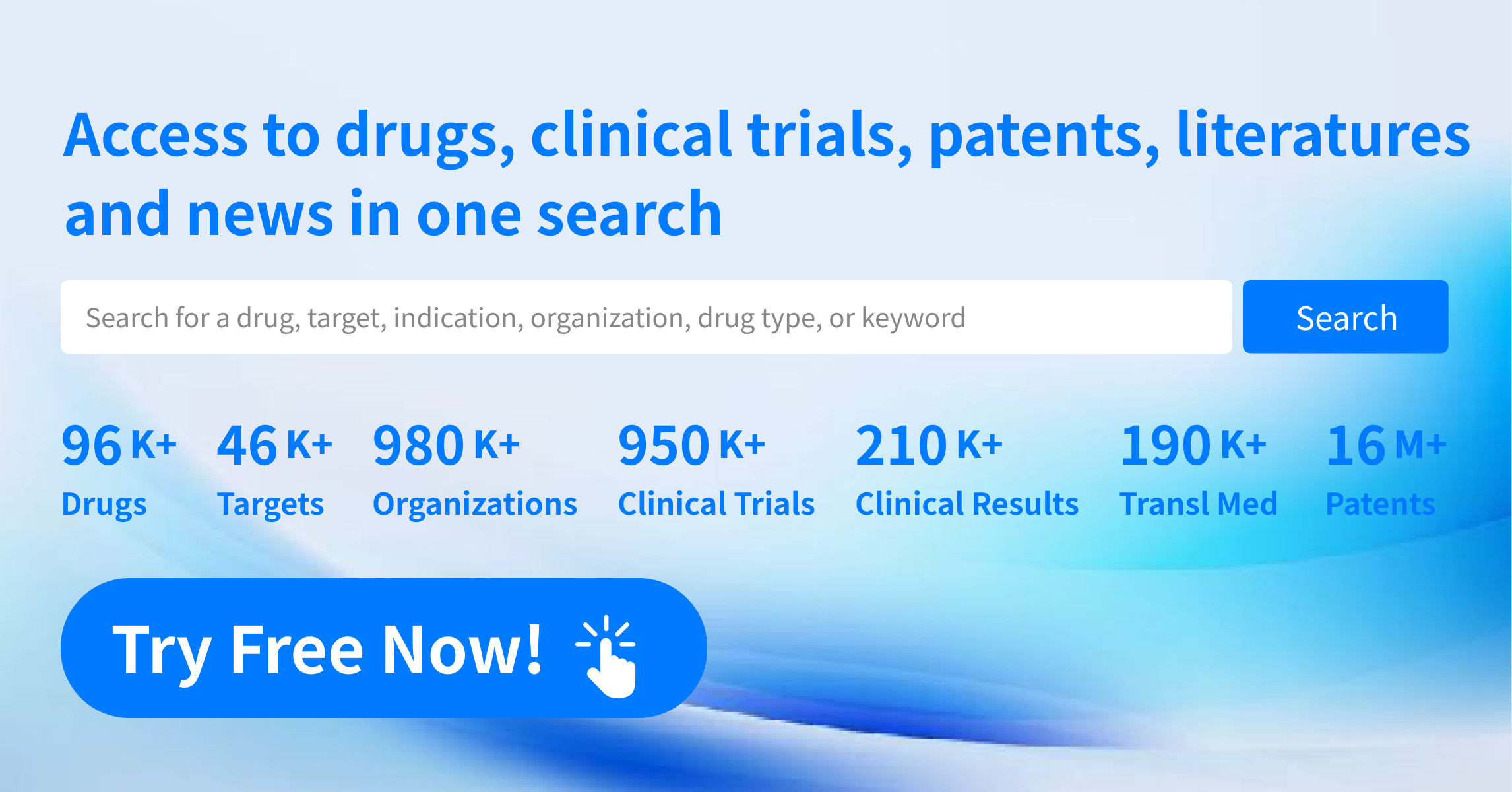Pharma Frontiers: Daily Digest of Global Pharmaceutical News – Sep 26
1.Haihe Biopharma's Oral Paclitaxel Approved in China
On September 25, according to the latest announcement from the NMPA (National Medical Products Administration), the marketing application for paclitaxel oral solution, jointly submitted by Daehwa Pharmaceutical and Haihe Biopharma, has been approved. Public records show that this oral paclitaxel formulation (development code RMX3001) was developed in collaboration between Daehwa Pharmaceutical and Haihe Biopharma. This marketing application is primarily based on the results of a Phase 3 clinical trial in second-line treatment for gastric cancer patients. Paclitaxel is one of the most widely used chemotherapy drugs. Currently, in most parts of the world, paclitaxel is administered via injectable formulations that require preparation and intravenous infusion in hospitals, requiring patients to make frequent hospital visits and causing adverse reactions at the injection site. Therefore, the development of oral paclitaxel formulations has garnered significant industry attention. RMX3001 is an oral paclitaxel formulation developed by Daehwa Pharmaceutical using its innovative lipid-based self-emulsifying drug delivery system. It was previously approved by the Korean MFDS (Ministry of Food and Drug Safety) in 2016 under the trade name Liporaxel, indicated for the second-line treatment of advanced or metastatic gastric cancer or locally recurrent gastric cancer. In September 2017, Haihe Biopharma obtained the rights from Daehwa Pharmaceutical for the development, manufacturing, and commercialization of this product in Mainland China, Taiwan, Hong Kong, and Thailand.
2.Junshi Biosciences’ PD-1 Approved for Marketing in the European Union
On September 24, Junshi Biosciences announced that its independently developed anti-PD-1 monoclonal antibody drug, Toripalimab (trade name: LOQTORZI), has recently been approved by the European Commission (EC) for two indications: Toripalimab in combination with Cisplatin and Gemcitabine for the first-line treatment of recurrent, unresectable or radiotherapy-ineligible, or metastatic nasopharyngeal carcinoma (NPC) in adult patients; and Toripalimab in combination with Cisplatin and Paclitaxel for the first-line treatment of unresectable advanced/recurrent or metastatic esophageal squamous cell carcinoma (ESCC) in adult patients. This approval applies to all 27 EU member states, as well as Iceland, Norway, and Liechtenstein, making Toripalimab the first and only drug approved in Europe for the treatment of NPC, as well as the only first-line immunotherapy for advanced or metastatic ESCC in Europe regardless of PD-L1 expression. The EC's approval for NPC and ESCC indications is based on the positive results of the JUPITER-02 and JUPITER-06 studies, respectively.
3.Sanofi’s CD38 Antibody Sarclisa Approved by FDA for First-Line Treatment
On September 24, Sanofi announced that the U.S. FDA has approved the CD38 antibody Sarclisa (isatuximab) in combination with Bortezomib, Lenalidomide, and Dexamethasone (VRd regimen) for the first-line treatment of newly diagnosed multiple myeloma (NDMM) in adult patients ineligible for autologous stem cell transplantation (ASCT). According to the press release, Sarclisa in combination with standard VRd treatment significantly reduced the risk of disease progression or death by 40% compared to VRd alone in NDMM patients ineligible for ASCT. Sarclisa is the first CD38-targeted therapy approved by the FDA for use in combination with standard therapy for newly diagnosed multiple myeloma in adult patients not eligible for ASCT. The FDA’s approval is based on data from the Phase 3 IMROZ clinical trial, presented at the 2024 ASCO Annual Meeting and published in the New England Journal of Medicine. In the IMROZ study, Sarclisa in combination with VRd followed by Sarclisa combined with Rd (Lenalidomide and Dexamethasone) met the primary endpoint of progression-free survival (PFS). Compared to the control group, the Sarclisa combination therapy reduced the risk of relapse or death by 40% (HR=0.60; 95% CI: 0.44-0.81, p=0.0009).
4.FDA Approves New Drug for Niemann-Pick Type C Disease
On September 24, the U.S. FDA announced the approval of Aqneursa (levacetylleucine), developed by IntraBio, for the treatment of neurological symptoms associated with Niemann-Pick Type C (NPC) in adults and pediatric patients weighing at least 15 kg. This is the second NPC therapy approved within a week, following the approval of Zevra Therapeutics' oral therapy Miplyffa (arimoclomol). NPC is a rare genetic disorder that leads to progressively worsening neurological symptoms and organ dysfunction. Key neurological impairments in NPC patients include difficulties in speech, cognition, swallowing, walking, and fine motor skills, with an average life expectancy of around 13 years. Aqneursa is a modified amino acid that effectively crosses the blood-brain barrier via monocarboxylate transporters, ensuring distribution throughout the central nervous system. It has been shown to restore mitochondrial and lysosomal function within cells and enhances cerebellar glucose metabolism, thereby improving cerebellar function. The FDA had previously granted this therapy orphan drug designation, rare pediatric disease designation, and priority review status.
5.RemeGen’s Disitamab Vedotin Proposed for Priority Review for New Indication
On September 25, the CDE (Center for Drug Evaluation) announced that RemeGen’s HER2 ADC drug Disitamab Vedotin has been proposed for priority review. The intended indication is for the treatment of advanced breast cancer patients with liver metastasis who have previously received trastuzumab or its biosimilars and taxane therapy, with HER2-positive status (HER2 immunohistochemistry score of 3+ or FISH+). Disitamab Vedotin was conditionally approved in China for the treatment of HER2-positive gastric cancer and HER2-positive urothelial carcinoma in June 2021 and December 2021, respectively. In June this year, RemeGen announced positive results from the Phase III clinical trial (RC48-C006, NCT03500380) of Disitamab Vedotin for HER2-positive advanced breast cancer patients with liver metastasis, meeting the primary study endpoint.
6.Johnson & Johnson's EGFR/cMET Bispecific Subcutaneous Injection Filed for Domestic Approval
On September 25, the NMPA's (National Medical Products Administration) CDE website showed that Johnson & Johnson's Amivantamab subcutaneous injection application has been accepted for review. This is the first time the subcutaneous formulation of Amivantamab has been filed for approval in China. Data from the Phase III PALOMA-3 study (NCT05388669) showed that in non-small cell lung cancer (NSCLC) patients with EGFR exon 19 deletion or L858R mutation, subcutaneous (SC) Amivantamab had an objective response rate (ORR of 30.1% vs 32.5%) comparable to intravenous (IV) administration. SC Amivantamab also significantly shortened administration time (completed in approximately 5 minutes), reduced infusion-related reactions by fivefold, and extended overall survival, progression-free survival (mPFS of 6.1 and 4.3 months, respectively), and duration of response. On June 17 of this year, Johnson & Johnson announced that it had submitted a Biologics License Application (BLA) to the FDA for the subcutaneous formulation of Amivantamab, covering all currently approved or filed indications for the intravenous formulation.
7.Amgen Announces Phase III Clinical Data for OX40 Antibody in Atopic Dermatitis
On September 25, Amgen announced the latest clinical progress in the autoimmune/inflammation field, including front-line data from the Phase III trial of the OX40 antibody Rocatinlimab for the treatment of atopic dermatitis. Rocatinlimab is an OX40 antibody initially developed by Kyowa Hakko Kirin, and in 2021, Amgen acquired rights to the drug for markets outside Japan, with an upfront payment of $400 million, milestone payments of $850 million, and a percentage of future sales. The disclosed Phase III HORIZON trial enrolled 726 patients with atopic dermatitis, who were randomly assigned in a 3:1 ratio to receive either Rocatinlimab monotherapy or placebo. The primary endpoints were EASI-75 at week 24 and rIGA 0/1 or vIGA-AD 0/1. The HORIZON study met its primary endpoints, with EASI-75 response rates of 32.8% in the Rocatinlimab group versus 13.7% in the placebo group, and vIGA-AD 0/1 response rates of 19.3% for Rocatinlimab compared to 6.6% for placebo. Atopic dermatitis is currently the largest dermatological disease market, with a global market expected to exceed $17.5 billion by 2028, and the moderate-to-severe market related to biologics is expected to account for more than 70% of this share.
8.First Small Molecule CD73 Inhibitor Enters Phase III Trial
On September 23, the U.S. clinical trials website clinicaltrials.gov showed that the small molecule CD73 inhibitor Quemliclustat (AB680) has initiated a Phase III trial (PRISM-1), making it the first small molecule CD73 inhibitor to reach Phase III. This multicenter, randomized, double-blind, placebo-controlled trial (n=610) aims to evaluate the efficacy and safety of Quemliclustat in combination with chemotherapy (Albumin-Bound Paclitaxel + Gemcitabine) versus placebo combined with chemotherapy in treatment-naïve patients with metastatic pancreatic ductal adenocarcinoma (PDAC). The primary endpoint is overall survival (OS). In September 2017, Taiho Pharmaceutical and Arcus Bioscience entered a collaboration to develop multiple immuno-oncology drugs. Taiho exercised its exclusive option on Quemliclustat in July this year, gaining development and commercialization rights in Japan and certain regions in Asia. Additionally, during the collaboration, Taiho Pharmaceutical acquired development and commercialization rights for Etrumadenant, Zimberelimab, Domvanalimab, and AB308. In May 2020, Gilead and Arcus Biosciences entered a 10-year collaboration agreement, and in November 2021, Gilead acquired global development and commercialization rights for Quemliclustat (excluding already licensed regions).
9.Lepu Biopharma’s EGFR ADC Submitted for Marketing Approval
On September 25, the CDE website showed that Lepu Biopharma's application for marketing approval of Vibecotamab (MRG003) injection has been accepted. Recently, this drug was proposed for priority review for the treatment of patients with recurrent or metastatic nasopharyngeal carcinoma (NPC) who have failed at least two lines of systemic chemotherapy and PD-1/PD-L1 inhibitor treatment. This drug is the most advanced domestically developed EGFR ADC. Vibecotamab is an ADC composed of an EGFR-targeting monoclonal antibody and a potent microtubule inhibitor payload—Monomethyl Auristatin E—conjugated via a valine-citrulline linker. It binds specifically and with high affinity to EGFR on the surface of tumor cells, and after internalization and lysosomal protease cleavage, releases the potent payload, leading to tumor cell death. Phase II results showed that among 61 NPC patients who had failed platinum-based and/or PD-(L)1 inhibitor treatment, the objective response rate (ORR) in the 2.0 mg/kg cohort (n=28) and 2.3 mg/kg cohort (n=29) reached 39.3% and 55.2%, respectively, with disease control rates (DCR) of 71.4% and 86.2%. The median duration of response (DOR) was 6.8 months, and the median progression-free survival (PFS) was 7.3 months and not yet mature, respectively.
10.TJ Bio Licenses Next-Generation CD73 Antibody to Sanofi
On September 25, TJ Bio announced that it had licensed the Greater China rights for its CD73 antibody, Uliledlimab, to Sanofi. Sanofi will make an upfront payment of €32 million (approximately $36 million) along with near-term milestone payments and a percentage of future sales. The total agreement value could reach up to €213 million (approximately $238 million). According to the announcement, TJ Bio will continue to lead clinical development and manage long-term manufacturing and supply of the drug, while Sanofi will share some of the development costs and take charge of commercialization. Uliledlimab is TJ Bio’s first self-developed pipeline and is currently in Phase II clinical trials for first-line treatment of non-small cell lung cancer. Earlier this year, after completing a spin-off restructuring, TJ Bio obtained the Greater China rights for Uliledlimab, while Nasdaq-listed I-Mab holds the rights outside of Greater China. This licensing deal concerns only the Greater China rights.
11.$52 Million Series B Financing to Develop Gene Therapies for Rare Diseases
On September 25, Genespire announced the completion of a €46.6 million (approximately $52 million) Series B financing round, co-led by Sofinnova Partners, XGEN Venture, and CDP Venture Capital through its large venture fund, along with Indaco SGR. This financing will enable Genespire's lead candidate, GENE202, to advance into Phase I/II clinical trials for methylmalonic acidemia (MMA), a debilitating genetic disorder that impairs the metabolism of certain amino acids and fats. The funding will also support the discovery and preclinical development of other candidate products targeting various genetic disorders, thus strengthening the company's research pipeline. Genespire aims to develop off-the-shelf gene therapies for pediatric patients affected by genetic diseases and had previously raised €16 million in its Series A round in 2020.
How to obtain the latest research advancements in the field of biopharmaceuticals?
In the Synapse database, you can keep abreast of the latest research and development advances in drugs, targets, indications, organizations, etc., anywhere and anytime, on a daily or weekly basis. Click on the image below to embark on a brand new journey of drug discovery!




